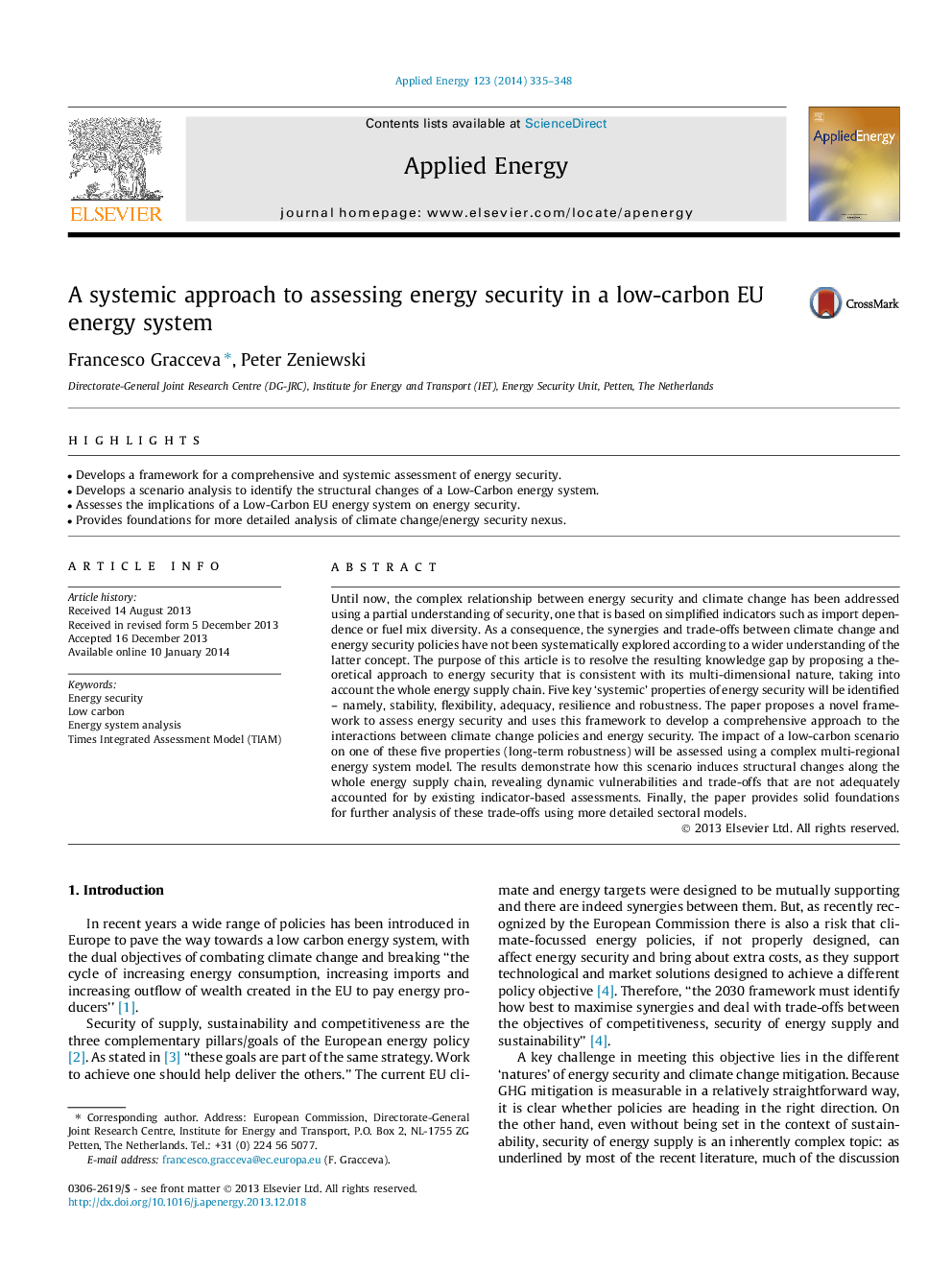| Article ID | Journal | Published Year | Pages | File Type |
|---|---|---|---|---|
| 6690499 | Applied Energy | 2014 | 14 Pages |
Abstract
Until now, the complex relationship between energy security and climate change has been addressed using a partial understanding of security, one that is based on simplified indicators such as import dependence or fuel mix diversity. As a consequence, the synergies and trade-offs between climate change and energy security policies have not been systematically explored according to a wider understanding of the latter concept. The purpose of this article is to resolve the resulting knowledge gap by proposing a theoretical approach to energy security that is consistent with its multi-dimensional nature, taking into account the whole energy supply chain. Five key 'systemic' properties of energy security will be identified - namely, stability, flexibility, adequacy, resilience and robustness. The paper proposes a novel framework to assess energy security and uses this framework to develop a comprehensive approach to the interactions between climate change policies and energy security. The impact of a low-carbon scenario on one of these five properties (long-term robustness) will be assessed using a complex multi-regional energy system model. The results demonstrate how this scenario induces structural changes along the whole energy supply chain, revealing dynamic vulnerabilities and trade-offs that are not adequately accounted for by existing indicator-based assessments. Finally, the paper provides solid foundations for further analysis of these trade-offs using more detailed sectoral models.
Related Topics
Physical Sciences and Engineering
Energy
Energy Engineering and Power Technology
Authors
Francesco Gracceva, Peter Zeniewski,
